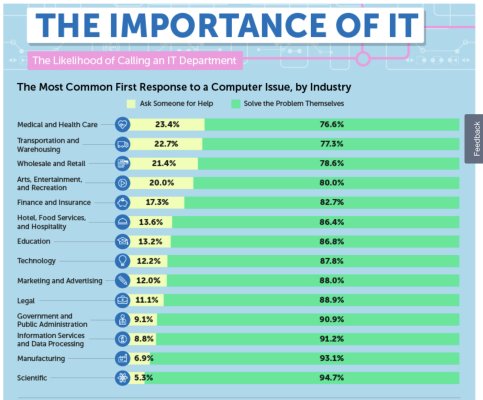Midpack
Give me a museum and I'll fill it. (Picasso) Give me a forum ...
It has always seemed healthcare is always behind on integrating computers into their practices, and I have always wondered why. The paperwork at most doctors is frustrating at best, and you can tell the younger folks that work there are just as dissatisfied as any remotely tech savvy customers, but can't do anything about it. This article doesn't help much.
My anecdotes:
My anecdotes:
- We moved here couple years ago, so we've had to reestablish with new docs across the board.
- I still find myself confronted with 4 page paper questionnaires at many doctors offices. That's ridiculous in 2022.
- The last two offered the opportunity to fill out the questionnaire online in advance of the appt - great!
- The first one an ortho - the surly woman at the counter told me they didn't have it when I arrived and handed me the stupid paper questionaire again.
- Today I went to an eye doc, and they handed us questionnaires in the tiniest font ever, but we told them we'd submitted them online the day before - and they said, we'll try to find them and didn't make us do paperwork. However, the first tech asked me many of the same questions, when I said I answered these questions already, she said that system doesn't sync with their medical records system. Is this 1992?
- OTOH, our GP is no more than 30 yo, and she can make computer tech dance - so it's entirely possible. We get results, consults and questions answered from her online very quickly!
- A good friend, an accomplished orthopedic surgeon, is the least tech savvy person I know of any age (my 93 yo Mom was better). The doc is totally bewildered by his latest model iPhone, he may/not be able to handle a text, or make a phone call.
The surgeons at the training session ranged in age from thirty to seventy, I estimated—about sixty per cent male, and one hundred per cent irritated at having to be there instead of seeing patients.
Something's gone terribly wrong. Doctors are among the most technology-avid people in society; computerization has simplified tasks in many industries. Yet somehow we’ve reached a point where people in the medical profession actively, viscerally, volubly hate their computers.
Last edited:

